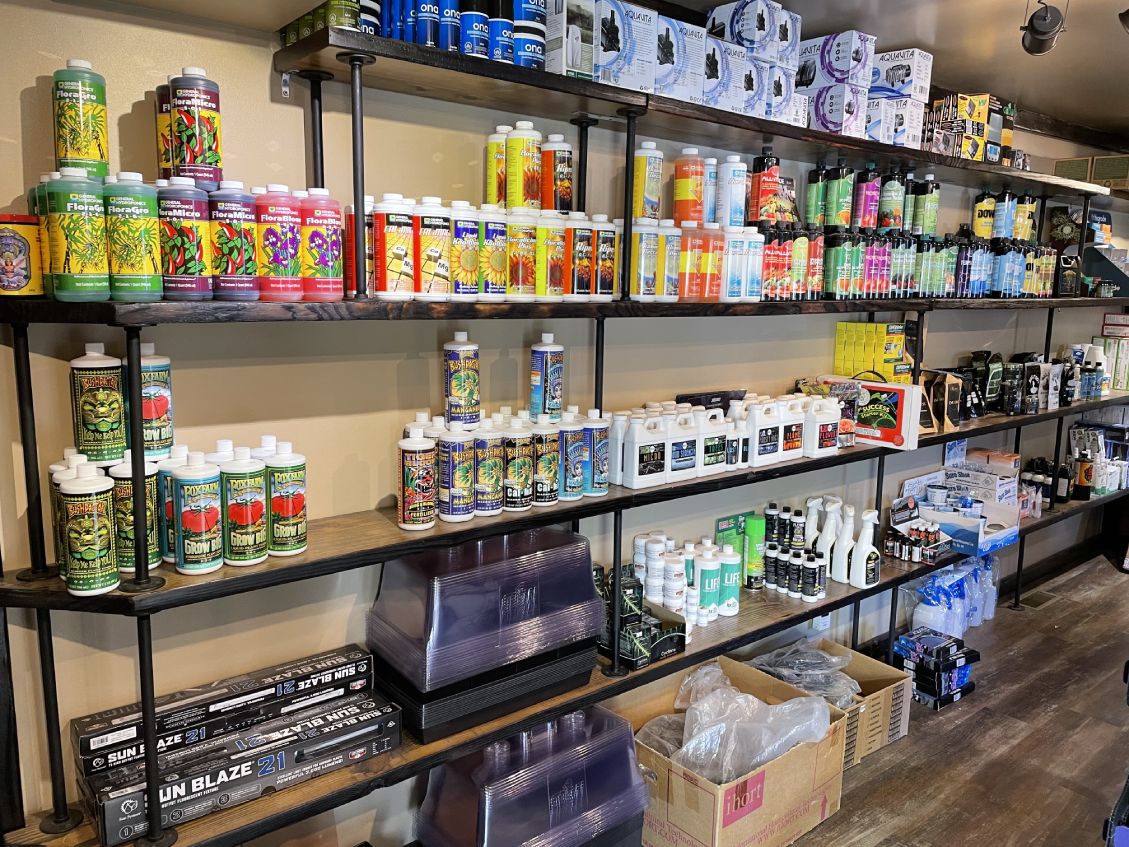Discover the Ultimate Planting Strategy: The Indoor Earthworm Approach
Discover the Ultimate Planting Strategy: The Indoor Earthworm Approach
Blog Article
Enhance Your Horticulture Skills With Hydroponics: Checking Out Benefits
The method of cultivating plants without soil might appear unique at initially, yet its benefits are worth taking into consideration. As we dig right into the globe of hydroponic gardening, we reveal a plethora of advantages that not just enhance plant development however also provide unique opportunities for individuals looking to raise their horticulture abilities.
Advantages of Hydroponic Gardening
Hydroponic horticulture offers numerous benefits as a result of its efficient use of resources and specific control over plant development problems. By providing plants with direct access to nutrients dissolved in water, hydroponic systems eliminate the requirement for soil, decreasing water use by as much as 90% contrasted to standard soil-based cultivation. This reliable nutrient distribution method likewise allows for faster plant growth rates and greater returns, making hydroponic gardening an appealing alternative for maximizing limited area and resources.
In addition, the controlled setting of hydroponic systems makes it possible for farmers to maximize aspects such as ph, temperature level, and moisture levels, bring about healthier plants with decreased danger of illness and bugs. This accurate control over growing conditions not only promotes faster and extra regular plant development however additionally enables year-round farming no matter of outside climate condition.
Faster Plant Development With Hydroponics
Using innovative nutrient shipment systems, hydroponic horticulture assists in accelerated plant development prices compared to typical soil-based farming methods. In hydroponic systems, plants have straight access to crucial nutrients dissolved in water, permitting optimal absorption without the need to expend energy creating considerable root systems to browse for nutrients in the dirt. This reliable nutrient delivery system makes it possible for plants to reroute their power towards durable vegetative development and respected fruiting or blooming.
Additionally, the controlled environment in hydroponic configurations ensures that plants obtain the suitable problems for growth constantly. Elements such as temperature level, ph, light, and humidity degrees can be meticulously monitored and gotten used to create the ideal expanding setting for each and every plant variety. By eliminating the irregularity present in soil-based horticulture, hydroponic systems give plants with a secure and desirable setup that maximizes their growth capacity.

Water Preservation Benefits
Provided the efficient nutrient delivery system and regulated atmosphere of hydroponic systems, one substantial benefit worth discovering is the conservation of water resources. Hydroponic horticulture consumes to 90% much less water compared to conventional soil-based horticulture methods. This substantial decrease is attributed to the closed-loop system where water is recirculated and reused, lessening wastefulness. In standard dirt horticulture, water is shed via dissipation, runoff, and percolation beyond the root zone, leading to ineffectiveness. In hydroponics, the nutrient option is provided directly to the plant origins, guaranteeing ideal water uptake and reducing water loss.
Additionally, hydroponic systems permit exact control over water use, with the ability to check and adjust nutrient degrees based upon plant demands. This targeted approach prevents overwatering, a common concern in soil-based gardening, more adding to water conservation initiatives. By optimizing water effectiveness and decreasing waste, hydroponic gardening emerges as a green and sustainable option for people looking to decrease their water consumption in gardening practices.
Year-Round Plant Cultivation

By controlling variables such as temperature level, light, and nutrient degrees, hydroponic systems enable plants to grow regardless of external weather. This regular setting enables continuous plant development click to investigate and harvest, providing a reliable supply of fresh fruit and vegetables even in the dead of winter season.
Furthermore, the ability to cultivate plants year-round in hydroponic systems opens up chances for farmers to experiment with a larger selection of crops, broaden their expanding periods, and rise total performance. This versatility and reliability make year-round plant cultivation in hydroponics an important device for both enthusiasts and business cultivators seeking to optimize their horticulture efforts.
Enhancing Horticulture Abilities With Hydroponics
Creating effectiveness in hydroponics can empower garden enthusiasts with a deeper understanding of plant farming methods and improve their overall horticulture abilities. Hydroponic systems give a controlled atmosphere where garden enthusiasts can closely monitor and change aspects such as nutrient degrees, pH balance, and lighting problems to maximize plant development. By grasping these elements, gardeners can adjust their skills and knowledge, bring about even more successful harvests and healthier plants.
Additionally, hydroponic horticulture difficulties standard concepts of soil-based farming, urging garden enthusiasts to believe outside package and try out ingenious growing approaches. This testing can foster creativity and analytic skills, as gardeners find out to adjust and fix concerns one-of-a-kind to hydroponic systems. Furthermore, the efficiency of hydroponic configurations, such as upright yards or nutrient film methods, can instruct gardeners just how to maximize area and resources efficiently.
Verdict
Finally, hydroponic gardening provides many advantages such as faster plant development, water preservation, and year-round growing. By checking out the advantages of hydroponics, individuals can enhance their horticulture abilities and attain effective plant growth. Consider integrating hydroponic techniques into your gardening practices to optimize performance and performance in your yard.
As we delve right into the globe of hydroponic horticulture, we click here for more info reveal a wide variety of advantages that not just improve plant growth yet likewise supply special opportunities for people looking to raise their horticulture skills.Utilizing advanced nutrient distribution systems, hydroponic horticulture promotes sped up plant development rates compared to standard soil-based cultivation methods. By removing the irregularity existing in soil-based gardening, hydroponic systems give plants with a stable and positive setup that optimizes their development capacity.
Enhancing the sustainability and efficiency of read what he said horticulture techniques, year-round plant growing in hydroponic systems supplies a consistent and reputable method for cultivating a selection of plants no matter of seasonal restrictions. The Indoor Earthworm.In verdict, hydroponic gardening provides many advantages such as faster plant development, water preservation, and year-round growing
Report this page